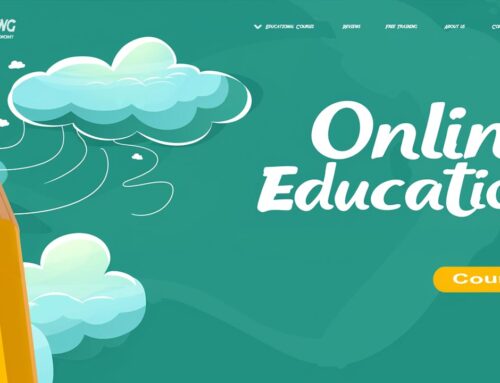Challenges in the Workforce for Baby Boomers
The Baby Boomer generation, traditionally known for its strong work ethic and stability, is facing unprecedented challenges as they approach or surpass the twilight years of their careers. Born between the mid-1940s and mid-1960s, these individuals have dominated the workforce for decades, often occupying leadership positions and shaping industries. However, many Baby Boomers now find themselves grappling with significant obstacles in the modern job market. With layoffs becoming more common and technology evolving at a rapid pace, this generation is navigating an increasingly volatile landscape.
In today’s article, we’ll explore the major challenges Baby Boomers face, including age discrimination, skill atrophy, and the evolving demands of the digital economy. We’ll also delve into strategies for staying relevant, such as skill reinvention and networking, and examine how age bias impacts hiring practices. Finally, we’ll provide insights into what younger generations can learn from these challenges to avoid similar pitfalls in their future careers.
Table of Contents
- The Challenges Baby Boomers Face
- Strategies for Overcoming Workforce Challenges
- The Opportunity to Leverage Your Work Experience Online
- Lessons for Younger Generations
- Top 5 Frequently Asked Questions
- Final Thoughts
- Resources
The Challenges Baby Boomers Face
Age Discrimination and Bias
Age discrimination remains one of the most pervasive challenges for Baby Boomers in the workplace. Despite having extensive experience, many Boomers report being overlooked for positions or promotions in favor of younger candidates. Studies show that workers over the age of 50 are 17% less likely to be called back for interviews than their younger counterparts. The perception that older workers are out of touch, resistant to change, or unable to keep up with modern technologies often creates biases that hinder their ability to find new opportunities after layoffs.
Skill Atrophy and Technological Advancements
The rapid pace of technological advancement is leaving many Baby Boomers behind. Having spent decades honing skills in industries that may no longer prioritize manual expertise, many Boomers face the challenge of skill atrophy. While younger generations have grown up with digital tools, many Baby Boomers are finding it difficult to adapt to software-driven processes and data-centric business models. Without upskilling, the gap between their current competencies and the demands of the modern workforce widens, making them vulnerable in a highly competitive job market.
Layoffs and Financial Instability
With Baby Boomers often at the higher end of salary bands, they are frequent targets during cost-cutting layoffs. These forced exits from the workforce can be financially devastating, especially for those who have not yet reached retirement age. As companies seek to reduce overhead, it’s often the more experienced, higher-paid employees who are let go. The loss of income during these critical years can derail retirement plans and cause long-term financial instability. A study by ProPublica found that 56% of older workers are pushed out of their jobs before they’re ready to retire, with only a fraction managing to recover their former earnings.

Strategies for Overcoming Workforce Challenges
Continuous Learning and Skill Development
For Baby Boomers, the key to staying relevant in the workforce lies in continuous learning. Upskilling in areas like digital literacy, data analysis, and modern project management tools can make a world of difference. Programs like LinkedIn Learning or certifications in fields such as cybersecurity, digital marketing, and AI are particularly valuable in making older workers more competitive. Additionally, embracing “returnships”—temporary roles designed to help those returning to the workforce—can allow Baby Boomers to transition more smoothly into new job roles.
Leveraging Networking and Industry Connections
Networking remains one of the most powerful tools for career longevity. Baby Boomers should tap into professional networks they’ve cultivated over decades and leverage platforms like LinkedIn to stay visible. By engaging with industry leaders and participating in professional groups, they can stay informed about new trends and opportunities. Additionally, mentorship programs—both as mentors and mentees—can be an excellent way for Boomers to showcase their leadership and experience while learning from younger colleagues about emerging trends.

The Opportunity to Leverage Your Work Experience Online
One of the most overlooked opportunities for Baby Boomers facing challenges in the traditional workforce is the chance to leverage decades of work experience online. As the digital economy expands, it presents numerous ways to turn industry knowledge, leadership skills, and expertise into income-generating activities.
1. Freelancing and Consulting
Experienced professionals have a wealth of knowledge that can be monetized by offering freelance services or consulting. Platforms like Upwork, Fiverr, and Freelancer allow professionals to offer specialized skills in areas like management consulting, project management, or even industry-specific advisory roles. Many companies prefer hiring experienced consultants on a project basis, making this an excellent option for Boomers who want flexible working arrangements.
2. Online Coaching and Mentoring
Baby Boomers possess invaluable experience, often spanning multiple decades and industries. This expertise can be monetized by offering coaching or mentoring services. For example, professionals in leadership, career development, or financial planning can build a personal brand and offer one-on-one coaching sessions through platforms like CoachAccountable or Teachable. Coaching services can be promoted through personal websites, LinkedIn, and other social media, where credibility is established by sharing valuable insights.
3. Create and Sell Online Courses
Another lucrative option is creating educational content. Platforms like Udemy, Skillshare, and Kajabi allow professionals to design and sell online courses on topics they’ve mastered. For example, a former marketing executive might create a course on digital marketing strategies for small businesses, or an HR specialist could teach effective recruitment techniques. The e-learning market is booming, with the global market projected to hit $325 billion by 2025. This provides a massive opportunity for Baby Boomers to reach a global audience with their expertise.
4. Content Creation and Blogging
Content creation offers multiple revenue streams, from blogging to starting a YouTube channel or podcast. By sharing knowledge through written articles, videos, or audio content, Baby Boomers can build an audience. Monetization can come through ad revenue, sponsorships, affiliate marketing, and even offering premium content for subscribers. Medium, WordPress, and Substack are popular platforms for writing, while YouTube is ideal for video content.
5. Affiliate Marketing and Sponsored Content
For Baby Boomers looking to monetize a blog or social media presence, affiliate marketing is an excellent option. By partnering with companies to promote their products, Boomers can earn commissions on sales generated through their referral links. Additionally, building a strong personal brand can lead to sponsorship opportunities where companies pay for content promotion, particularly if Boomers are writing or speaking about niche areas like retirement planning, business leadership, or specific industries.
6. Teaching and Tutoring
Boomers can also leverage their expertise in specific subject areas by offering tutoring or online teaching. Websites like VIPKid, Tutor.com, and Chegg Tutors connect tutors with students globally, allowing Baby Boomers to teach subjects ranging from business to science. Teaching platforms like Outschool allow educators to create courses for children in niche subjects, from entrepreneurship to creative writing.
By tapping into these opportunities, Baby Boomers can continue to earn a sustainable income while working flexibly, leveraging their vast professional experience in new, rewarding ways.
Lessons for Younger Generations
The challenges faced by Baby Boomers serve as valuable lessons for younger generations. For Millennials and Gen Z workers, it’s critical to invest in lifelong learning and maintain adaptability in a rapidly changing job market. Building a strong personal brand, continuously developing skills, and prioritizing financial planning for retirement are essential strategies to avoid the pitfalls that many Boomers are currently experiencing.
Top 5 Frequently Asked Questions
Final Thoughts
The most important takeaway from the struggles Baby Boomers face in the workforce is the necessity of adaptability. While ageism and layoffs present significant challenges, staying ahead of the curve through upskilling, networking, and embracing new technologies can mitigate many of these issues. For future generations, the lesson is clear: maintain a forward-looking career strategy that focuses on continuous learning and agility to navigate an ever-changing job market.
Resources
- ProPublica study on layoffs and age discrimination
- iHire’s Baby Boomer employment survey
- U.S. Census Bureau statistics on retirement
- LinkedIn Learning for upskilling










Leave A Comment